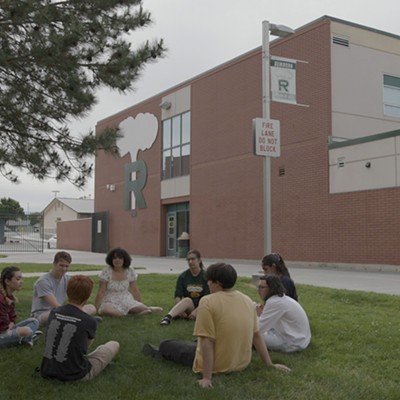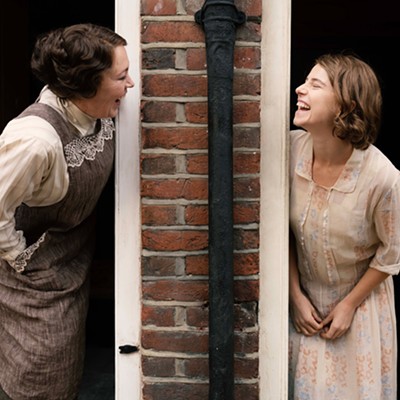Naysayers who have been going on and on for the past five years about Cormac McCarthy’s dreary, grueling and deeply moving book The Road being unfilmmable are about to have their mouths shut.
In this grim, straightforward tale, a man and his son make their way across a burnt-out landscape, looking for food and warmth, just trying to stay alive. Played by Viggo Mortensen (looking ragged and exhausted) and 12-year-old Kodi Smit-McPhee (looking tired and disheveled), the two make an odd, scrawny couple.
The father’s only mission is to protect his boy. That includes protection from rain, snow, freezing temperatures, hunger and dangerous roving bands of other survivors. Because he feels safe in the constant company of his dad, the boy’s only real role is to be a boy, to try as best he can to keep his curiosity alive.
The film actually has a beautiful, bright and flowery start, but it almost immediately throws the viewer into our heroes’ awful gray existence. When it’s not raining or snowing, the sky is filled with dark, ominous clouds. But the two continue along, a few meager supplies in a rattling shopping cart, heading for the east coast of America, hoping to find something, anything, that will pass for comfort.
There’s not much actual speaking in the film, though there’s plenty of the father’s interior narration, revealing such things as, “It’s been years since I kept a calendar.”
Even when father and son do speak, it’s brief and to the point. After a harrowing sequence that hints of the existence of cannibalism, the frightened boy turns to his dad and meekly asks, “We wouldn’t ever eat anybody, would we?” Dad’s answer: “Of course not.”
Accompanied by a quiet, mournful score by Nick Cave and Warren Ellis, the fi lm becomes a study of the closeness between father and son.
Though most of the really grisly passages from the book have been removed, some of this is still hard to take, whether it’s an intensely terrifying scene of marauding bad guys in a truck or a gentle bit where the father explains to his son that if things get really bad, there are two bullets in his gun — “one for you, one for me.”
Yet there are also moments of what at least looks like hope.
Slowly paced for its entire two hours, the film is an excellent adaptation of the book, perfectly capturing its bleakness. It’s trimmed down in all the right places, the relationship between father and son is totally believable and the bittersweet ending is just right.
















